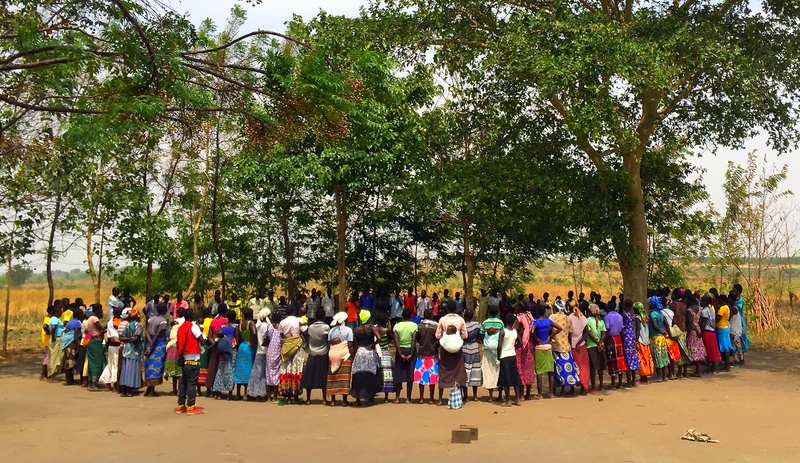Spark Microgrants works in impoverished communities in Uganda, Rwanda, and Burundi, with 116 community partners across the three countries.
Using an in-country fellowship program, Spark trains and employs recently-graduated university students to serve as project facilitators. These facilitators reach out to villages with particularly poor infrastructure, in order to involve them in a six-month planning process of carefully structured weekly meetings.
Community members develop their own project proposal, and Spark awards a one-time microgrant of up to $10,000 to support the initiative’s implementation. Spark additionally provides six months of management support and up to two years of follow up support.
Spark follows five steps within a project in order to catalyze change within a community:
- Partnership and Community Building: a leadership committee is elected, a mission statement is developed, and the committee conducts resource analysis and mapping.
- Goal Setting: the community brainstorms and creates a goal, develops objectives for reaching this top goal, researches progress towards each objective and prioritizes focus, and identifies a project that will help reach the goal.
- Proposal Development: a monitoring and evaluation system is created to track the project’s impact, a plan for implementation is established using action plans and budgets, and risks are analyzed and bylaws are established in accordance with the sustainability plan.
- Technical Advisory & Proposal Review: the Spark team and a technical adviser provide feedback, and the proposal is then revised to create a stronger plan.
- Implementation: resources are mobilized and implementation begins, Spark provides supporting funds in installments and advocates for transparent and accountable financial management.
- Post Implementation: the community participates in the development of an exit strategy, partnerships are built with other organizations, local government, businesses, data is collected and evaluated based on original M&E goals, new initiatives are brainstormed, and key members of the community are trained on the Spark process to facilitate future projects.
The Spark process is centered on 5 core principles:
- Cohesion- measured with four different dimensions:
- A sense of belonging
- A communal approach
- Conflict resolution
- Social trust and social capital
- Civic engagement – determined with three dimensions of participation:
- Participation
- Commitment
- Ownership
- Leadership – with four dimensions of measurement:
- Extent
- Equity and diversity
- Quality
- Transparency and accountability
- Capacities – measured with four dimensions:
- Social skills
- Project and technical skills
- Confidence
- Agency
- Sustainable local impact projects – measured by project sustainability and the community’s ability to meet their own project objectives.


